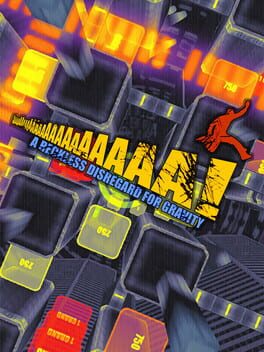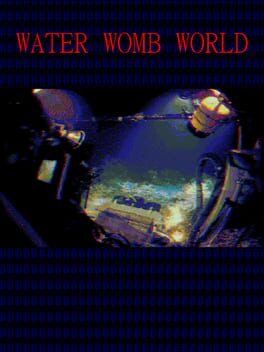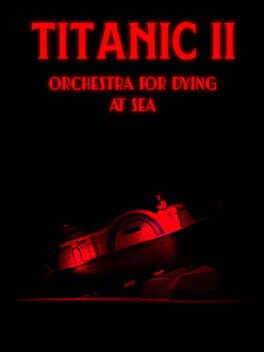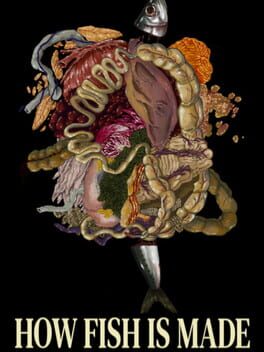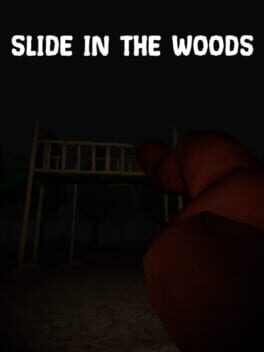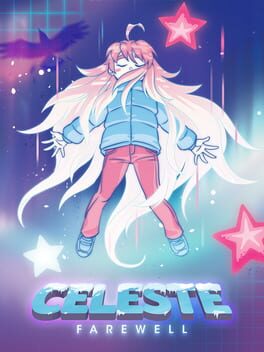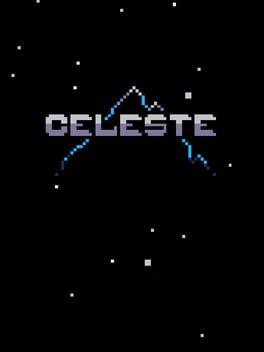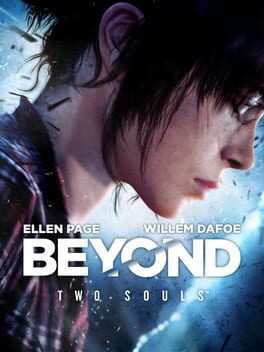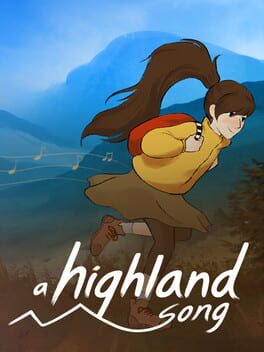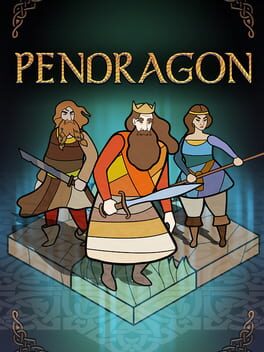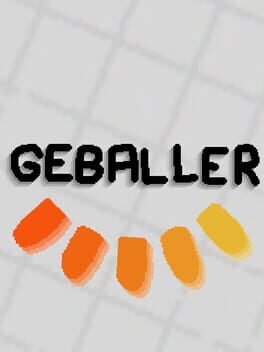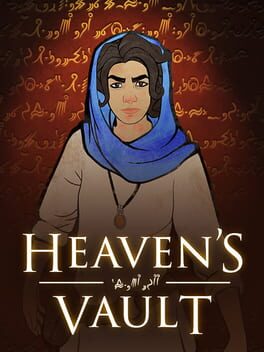Un juego muy entretenido, aunque algo limitado. La presentación hace mucho por meterte en una dinámica gamberra que, pese a suceder en Boston, me hace pensar en todos aquellos juegos británicos de los noventa que iban de romper cosas y faltarle el respeto a la autoridad.
Su principal escollo es que, para lo complejo y variado que llega a ser, el ritmo de juego se queda un poco corto a la hora de ofrecerte escenarios interesantes. Demasiadas veces da la impresión de que estás en un mapa completamente nuevo y acaba resultando ser el mismo reto con assets diferentes. Más allá de eso, tratar de llegar a las 5 estrellas me frustró pero tampoco pude parar hasta conseguirlo. Algo bueno tendría que estar haciendo para animarme de esta forma.
------------------
A very entertaining if somewhat limited little game. The presentation does a lot to get into a hooligan mindset. Despite taking place in Boston, it really looks like those 90's British games that were all about looking cool and sticking it to the man.
Its main drawback is that despite the game's variety, its rhythm falls a little short. Too many times it feels like you're doing the same challenge with slightly different assets. Beyond that, getting all 5 stars was frustrating but I couldn't put the game down until I did it, so there must be something worthwhile in here.
Su principal escollo es que, para lo complejo y variado que llega a ser, el ritmo de juego se queda un poco corto a la hora de ofrecerte escenarios interesantes. Demasiadas veces da la impresión de que estás en un mapa completamente nuevo y acaba resultando ser el mismo reto con assets diferentes. Más allá de eso, tratar de llegar a las 5 estrellas me frustró pero tampoco pude parar hasta conseguirlo. Algo bueno tendría que estar haciendo para animarme de esta forma.
------------------
A very entertaining if somewhat limited little game. The presentation does a lot to get into a hooligan mindset. Despite taking place in Boston, it really looks like those 90's British games that were all about looking cool and sticking it to the man.
Its main drawback is that despite the game's variety, its rhythm falls a little short. Too many times it feels like you're doing the same challenge with slightly different assets. Beyond that, getting all 5 stars was frustrating but I couldn't put the game down until I did it, so there must be something worthwhile in here.
2020
Entre esto, The Well y Vía Negativa, empiezo a considerar a Yames une artista de pocas temáticas y muchas ideas. Donde el primer juego tanteaba con los elementos de una novela gótica clásica, y Vía Negativa trata de presentarse como una versión retorcida del sacrificio de Job, Water Womb World es, a mi parecer, la obra suya que más reconoce sus raíces lovecraftianas. A decir verdad, hay historias en los Mitos de Cthulhu que se leen prácticamente igual si excusas el componente religioso.
Como ya he dicho, creo que Yames es un poco de piñón fijo, pero mientras la estética y la presentación me entren, estaré dispuesto a excusarlo. Y aquí lo que me ha entrado es la interfaz de PC-98 que lo impregna todo. Con todo, hecho en falta un poquito más de variedad.
----------------------
Between this, The Well and Via Negativa, I'm beginning to see Yames as an artist with few themes but many ideas. Whereas the first game tinkered with the tropes of a gothic novel, and Via Negativa is like a twisted version of Job's sacrifice, Water Womb World is the one work of his that sits closer to Lovecraft. Truth be told, there are stories in the Cthulhu Myths that read pretty much the same minus the religious component.
As I said, I think Yames is a bit of a one trick pony, but as long as the aesthetics and presentation suit me I'll be willing to play. The PC-98 interface is what did it for me this time, but I missed some variety in the end.
Como ya he dicho, creo que Yames es un poco de piñón fijo, pero mientras la estética y la presentación me entren, estaré dispuesto a excusarlo. Y aquí lo que me ha entrado es la interfaz de PC-98 que lo impregna todo. Con todo, hecho en falta un poquito más de variedad.
----------------------
Between this, The Well and Via Negativa, I'm beginning to see Yames as an artist with few themes but many ideas. Whereas the first game tinkered with the tropes of a gothic novel, and Via Negativa is like a twisted version of Job's sacrifice, Water Womb World is the one work of his that sits closer to Lovecraft. Truth be told, there are stories in the Cthulhu Myths that read pretty much the same minus the religious component.
As I said, I think Yames is a bit of a one trick pony, but as long as the aesthetics and presentation suit me I'll be willing to play. The PC-98 interface is what did it for me this time, but I missed some variety in the end.
Un ejemplo bastante logrado de vandalismo cultural que se asemeja a una instalación de arte del movimiento No Wave. Al igual que DK hizo con Oikospiel y Kate B con Pottergame, hay algo juguetón y gamberro en a estas figuras retorcerse y descontextualizarse. Sin embargo, en el fondo se trata de un intento serio de reconciliar nuestra propia mortalidad. Por tonto que sea el marco (y el propio autore lo reconoce mostrándote su Discord), esta obra acaba sintiéndose muy Millennial por la forma en que aborda la muerte y la idea de desaparecer. No sé qué pasará cuando llegue el final, pero este juego cree que estaré inmerso en basura cultural y acabaré pasando sin darme cuenta.
-----------
A great work of cultural vandalism that sits closer to a No Wave art installation. Just like DK did with Oikospiel several years ago and Kate B did with Pottergame, there's a playful nature in seeing these models twisted and dcontextualized. Deeper than that though, you have a frank attempt at trying to reconcile with one's own mortality. As silly as the framework is (and the author themselves lampshades the fact by showing you his discord messages), this work can't help but feel distinctly Millennial in the way it approaches death and the idea of disappearing. I don't know what I'll experience when I'll confront my own end, but this game thinks that I'll be way too immersed in meaningless cultural detritus to notice.
-----------
A great work of cultural vandalism that sits closer to a No Wave art installation. Just like DK did with Oikospiel several years ago and Kate B did with Pottergame, there's a playful nature in seeing these models twisted and dcontextualized. Deeper than that though, you have a frank attempt at trying to reconcile with one's own mortality. As silly as the framework is (and the author themselves lampshades the fact by showing you his discord messages), this work can't help but feel distinctly Millennial in the way it approaches death and the idea of disappearing. I don't know what I'll experience when I'll confront my own end, but this game thinks that I'll be way too immersed in meaningless cultural detritus to notice.
2022
Tuve la oportunidad de jugar este juego hace tiempo, y volviendo a él, repito mucho de lo que ya dije. Es un ejercicio simple de nihilismo, llevado a un aspecto de la industria humana especialmente siniestro, y a fin de cuentas, es poco más que una excusa para que le autore comparta su completo nihilismo ante la vida. En sus mejores momentos, este juego se siente como un exabrupto terapéutico, un grito de rabia convertido en píxel. Esa rabia puede ser muy poderosa de sentir, pero necesita menos ironía auto-impuesta.
-------------------------
I already played this game a while ago, and going back to it, I'm getting mostly the same. It's a simple exercise in nihilism that's using a particularly sinister aspect of human industry, and in the end, it's more of an excuse for the author to share how little value they find in life. At its best moments, this game feels like a therapeutic outburst, a cry of rage turned pixel. That rage can be very powerful to experience, but it needs less debilitating irony.
-------------------------
I already played this game a while ago, and going back to it, I'm getting mostly the same. It's a simple exercise in nihilism that's using a particularly sinister aspect of human industry, and in the end, it's more of an excuse for the author to share how little value they find in life. At its best moments, this game feels like a therapeutic outburst, a cry of rage turned pixel. That rage can be very powerful to experience, but it needs less debilitating irony.
2021
Un descendiente bastante logrado de SCP-087, en el que se mezclan el test de resistencia de aquella obra con la curiosidad innata que incita el terror pixelado de hoy en día. No me convence demasiado la resolución de la historia (lo concreto de la amenaza diluye un poco la sensación de misterio insondable, similar a First Land, que me produjo el llegar a la última sección), pero la secuencia de persecución me pareció bastante lograda.
---------------
A worthy successor of SCP-087, and a game that sits in-between the endurance tests that horror games used to be and the innate curiosity that most pixelated horror is today. I'm not too convinced by the resolution of the story, as explaining the nature of the threat dilutes it a bit and didn't leave too much to imagination, which similar games like First Land provoked in me. But the chase sequence was fairly compelling in my opinion.
---------------
A worthy successor of SCP-087, and a game that sits in-between the endurance tests that horror games used to be and the innate curiosity that most pixelated horror is today. I'm not too convinced by the resolution of the story, as explaining the nature of the threat dilutes it a bit and didn't leave too much to imagination, which similar games like First Land provoked in me. But the chase sequence was fairly compelling in my opinion.
2019
Si los capítulos y retos finales de Celeste ya mostraban síntomas de agotamientos, Celeste: Farewell trata de arreglarlos con un par de objetos excelentes (los peces y las medusas). Pero la configuración misma de los niveles ha dado un inmenso paso atrás. Ya no se trata de ser inventive ni de dominar el dash, ahora todo se reduce a hacer exactamente lo que tienes que hacer y no equivocarte ni un milímetro. La sección final es una prueba de resistencia que puso a prueba tanto mi frustración como mi valoración entera de la obra. Si lo único que tienes que ofrecer al final de todo es dificultad extrema y técnicas de speedrunner, entonces tu juego ya se ha quedado sin ideas.
En un vídeo de Patricia Taxxon sobre Celeste oí no hace mucho que la dificultad en los juegos podría entenderse como añadir picante a un plato, y me pareció una analogía bastante buena. Aquí sería como si alguien hubiera echado un bote entero de wasabi que, en vez de aumentar gradualmente, se limitara a hacerte toser entre cada cucharada.
--------------------------
If the final chapters of Celeste already showed signs of exhaustion, Celeste: Farewell tries to fix them with a couple of excellent objects that do wonders for me-the fish and the jellyfish. But the design of the levels has taken an immense step backwards. It's no longer about being inventive or mastering the dash, now it's all about doing exactly what you have to do and not getting an inch wrong. The final section is an endurance test that tested both my frustration and my entire assessment of the game. If all you have to offer at the end of it all is extreme difficulty and speedrunner techniques, then your game has officially run out of ideas.
In a video about Celeste I heard not long ago that difficulty in games could be understood as adding spice to a dish, and I thought that was a pretty good analogy. Here it would be as if someone had poured a whole pot of wasabi that instead of gradually increasing would make you cough a lot with each spoonful.
En un vídeo de Patricia Taxxon sobre Celeste oí no hace mucho que la dificultad en los juegos podría entenderse como añadir picante a un plato, y me pareció una analogía bastante buena. Aquí sería como si alguien hubiera echado un bote entero de wasabi que, en vez de aumentar gradualmente, se limitara a hacerte toser entre cada cucharada.
--------------------------
If the final chapters of Celeste already showed signs of exhaustion, Celeste: Farewell tries to fix them with a couple of excellent objects that do wonders for me-the fish and the jellyfish. But the design of the levels has taken an immense step backwards. It's no longer about being inventive or mastering the dash, now it's all about doing exactly what you have to do and not getting an inch wrong. The final section is an endurance test that tested both my frustration and my entire assessment of the game. If all you have to offer at the end of it all is extreme difficulty and speedrunner techniques, then your game has officially run out of ideas.
In a video about Celeste I heard not long ago that difficulty in games could be understood as adding spice to a dish, and I thought that was a pretty good analogy. Here it would be as if someone had poured a whole pot of wasabi that instead of gradually increasing would make you cough a lot with each spoonful.
2018
Un juego de plataformas aceptable que te induce, de forma maligna, a un estilo de juego determinista y rígido, en el que la solución a cualquier desafío consiste en encontrar la combinación de inputs exacta que la persona detrás del nivel pensó en el momento. Junto a este estilo de progresión que, todo sea dicho, escala de una forma muy suave, se nos narra una historia de superación que se vale de su creciente dificultad y se aúpa con diálogos, escenas y personajes que recuerdan a un capítulo mediano de Steven Universe.
Personalmente no veo claro que el juego dedique tanto texto y momentos específicos cuando la premisa misma del plataformas kaizo al que esta obra se integra ya se basa en transmitir deseos de superación mediante sus retos. Pero más allá de eso, mi problema principal con este juego es más mecánico que otra cosa, y mi sospecha de que el juego se estaba quedando sin fuelle terminó de confirmarse con el capítulo 8 y las Caras B. Al final, todos los plataformas vuelven a Mario, sobre todo cuando no son capaces de desarrollar una identidad fuerte.
Como punto de comparación, recomendaría algo como Downwell, un juego también muy difícil pero que se asienta en la idea de dejarte desarrollar tu propia estrategia, o Super Hexagon, un juego extremadamente rígido pero extremadamente corto también. Ambos tienen lecciones que enseñar a este género que creo que Celeste haría bien en aprender.
----------------------------------------
A decent platformer that wickedly guides you into a rigid, deterministic style of gameplay where the solution to every challenge winds down to figuring out the exact input combination that whoever who designed the level thought at the time. Along with this style of progression, which, it must be said, scales very smoothly, we have a story of overcoming that makes use of its increasing difficulty and is peppered with dialogues, scenes and characters reminiscent of a mid Steven Universe episode.
Personally, I don't see why the game devotes so much text and space to its story when the very premise of the kaizo platformer is based on overcoming ever-increasing challenges. But beyond that, my main problem with this game is more mechanical than anything else. My suspicion that the game was running out of steam was confirmed with chapter 8 and the B Faces. In the end, all platformers revert back to Mario, especially if they're are unable to develop a strong identity.
As a point of comparison, I would recommend something like Downwell, a game that's very difficult but relies on letting you develop your strategy, or Super Hexagon, a game that is extremely rigid but extremely short as well. Both have lessons to teach to this genre that I think Celeste could learn.
Personalmente no veo claro que el juego dedique tanto texto y momentos específicos cuando la premisa misma del plataformas kaizo al que esta obra se integra ya se basa en transmitir deseos de superación mediante sus retos. Pero más allá de eso, mi problema principal con este juego es más mecánico que otra cosa, y mi sospecha de que el juego se estaba quedando sin fuelle terminó de confirmarse con el capítulo 8 y las Caras B. Al final, todos los plataformas vuelven a Mario, sobre todo cuando no son capaces de desarrollar una identidad fuerte.
Como punto de comparación, recomendaría algo como Downwell, un juego también muy difícil pero que se asienta en la idea de dejarte desarrollar tu propia estrategia, o Super Hexagon, un juego extremadamente rígido pero extremadamente corto también. Ambos tienen lecciones que enseñar a este género que creo que Celeste haría bien en aprender.
----------------------------------------
A decent platformer that wickedly guides you into a rigid, deterministic style of gameplay where the solution to every challenge winds down to figuring out the exact input combination that whoever who designed the level thought at the time. Along with this style of progression, which, it must be said, scales very smoothly, we have a story of overcoming that makes use of its increasing difficulty and is peppered with dialogues, scenes and characters reminiscent of a mid Steven Universe episode.
Personally, I don't see why the game devotes so much text and space to its story when the very premise of the kaizo platformer is based on overcoming ever-increasing challenges. But beyond that, my main problem with this game is more mechanical than anything else. My suspicion that the game was running out of steam was confirmed with chapter 8 and the B Faces. In the end, all platformers revert back to Mario, especially if they're are unable to develop a strong identity.
As a point of comparison, I would recommend something like Downwell, a game that's very difficult but relies on letting you develop your strategy, or Super Hexagon, a game that is extremely rigid but extremely short as well. Both have lessons to teach to this genre that I think Celeste could learn.
2015
Lo jugué en la consola de Pico-8 que puedes desbloquear en el juego. La verdad, está okay, incluso cuando se nota que no está muy trabajado.
--------------------------------------
Played it on the Pico-8 Console that you can unlock in the game. It's honestly okay, obviously undercooked but that's about it.
--------------------------------------
Played it on the Pico-8 Console that you can unlock in the game. It's honestly okay, obviously undercooked but that's about it.
2013
El inevitable destino de una decisión artística equivocada, llevada a su extremo más ridículo. Donde Heavy Rain se presentaba como una propuesta de género con toques interactivos (que acababa disparándose su propio pie de pura incompetencia) Beyond se viste desde el principio como una Obra Seria que quiere hablar de Temas Serios ¿Qué Temas Serios? Elige ¡Los tenemos todos!
Bajo la montaña de chistes fáciles y derribos a su persona que David Cage (merecidamente) recibe, el señor y su equipo poseen una sensibilidad pulpera que tengo que admitir que me atrae. Heavy Rain supo mostrar, aunque fuera a ratos, ese talento del señor de Gruttola para recoger un género casposo y pasarlo por un par de pinceladas estilísticas. Un Night Shaymalan de mercadillo, podríamos decir. Pero ese potencial nunca se verá cumplido porque, incluso en sus mejores momentos (Fahrenheit, Omikron, una escena específica en Beyond) le puede el complejo y se ve obligado a disfrazar de oro lo que no pasa de pirita.
Aunque se trata de un estilo de juego denostado, el modelo de la "cinemática interactiva" ha dado muchas cosas buenas a lo largo del tiempo (pienso en Until Dawn como caso reciente y, mucho más atrás, me vienen a la cabeza los juegos de Tex Murphy y el grandioso Phantasmagoria 2) y su condición de género acomplejado es más culpa de quienes lo utilizan que del modelo en sí. Juegos como Beyond, con toda su pretensión de contar una historia madura repleta de tópicos de sensibilidad intelectualoide (la pobreza, los conflictos militares africanos, la marginación de los nativos americanos) acaba haciendo más mal que bien.
2013 fue una mierda de año entre esto, Last of Us y Bioshock Infinite. Vaya manera más patética de cerrar el ciclo de consolas de entonces y vaya presagio siniestro del que vendría después.
------------------------
The inevitable fate of a wrong-headed artistic path, taken to its horrible extreme. Whereas Heavy Rain presented itself as genre fare with some interactive elements (that crumbles out of sheer incompetence) Beyond: Two Souls wants to be immediately seen as a Serious Work that wants to talk about Serious Issue. What Serious Issues? Take your pick, we've got them all!
Underneath the mountain of easy jokes and dunks that David Cage (deservedly) receives, the man and his team possess a pulp sensibility that appeals to me at times. Heavy Rain was able to showcase, albeit briefly, Mr. Gruttola's talent for picking up a well-trod genre and elevate it with his particular touch. A second banana Night Shaymalan, we could say. But that potential will never be fulfilled because, even in his best moments (Fahrenheit, Omikron, a specific scene in Beyond) he is overcome by an inferiority complex and tries to reach highs that will never be reached.
Although this form of gameplay is generally mocked, the "interactive cutscene" model has made plenty of good things over the years (I'm thinking Until Dawn as a recent example, and the Tex Murphy games and Phantasmagoria 2 as earlier ones). The fact that it's so condescended today is more the fault of its participants than about the model itself. Games like Beyond, with its dedication towards telling a mature story with plenty of high-minded liberal topics (poverty, the Sudanese military conflict, the marginalization of Native Americans) ends up doing more harm than good.
Man, between this, The Last of Us and Bioshock: Infinite, 2013 was a really shitty year. What a pathetic way to cap on a whole generation of consoles, and what a sinister omen for what the next one would be about
Bajo la montaña de chistes fáciles y derribos a su persona que David Cage (merecidamente) recibe, el señor y su equipo poseen una sensibilidad pulpera que tengo que admitir que me atrae. Heavy Rain supo mostrar, aunque fuera a ratos, ese talento del señor de Gruttola para recoger un género casposo y pasarlo por un par de pinceladas estilísticas. Un Night Shaymalan de mercadillo, podríamos decir. Pero ese potencial nunca se verá cumplido porque, incluso en sus mejores momentos (Fahrenheit, Omikron, una escena específica en Beyond) le puede el complejo y se ve obligado a disfrazar de oro lo que no pasa de pirita.
Aunque se trata de un estilo de juego denostado, el modelo de la "cinemática interactiva" ha dado muchas cosas buenas a lo largo del tiempo (pienso en Until Dawn como caso reciente y, mucho más atrás, me vienen a la cabeza los juegos de Tex Murphy y el grandioso Phantasmagoria 2) y su condición de género acomplejado es más culpa de quienes lo utilizan que del modelo en sí. Juegos como Beyond, con toda su pretensión de contar una historia madura repleta de tópicos de sensibilidad intelectualoide (la pobreza, los conflictos militares africanos, la marginación de los nativos americanos) acaba haciendo más mal que bien.
2013 fue una mierda de año entre esto, Last of Us y Bioshock Infinite. Vaya manera más patética de cerrar el ciclo de consolas de entonces y vaya presagio siniestro del que vendría después.
------------------------
The inevitable fate of a wrong-headed artistic path, taken to its horrible extreme. Whereas Heavy Rain presented itself as genre fare with some interactive elements (that crumbles out of sheer incompetence) Beyond: Two Souls wants to be immediately seen as a Serious Work that wants to talk about Serious Issue. What Serious Issues? Take your pick, we've got them all!
Underneath the mountain of easy jokes and dunks that David Cage (deservedly) receives, the man and his team possess a pulp sensibility that appeals to me at times. Heavy Rain was able to showcase, albeit briefly, Mr. Gruttola's talent for picking up a well-trod genre and elevate it with his particular touch. A second banana Night Shaymalan, we could say. But that potential will never be fulfilled because, even in his best moments (Fahrenheit, Omikron, a specific scene in Beyond) he is overcome by an inferiority complex and tries to reach highs that will never be reached.
Although this form of gameplay is generally mocked, the "interactive cutscene" model has made plenty of good things over the years (I'm thinking Until Dawn as a recent example, and the Tex Murphy games and Phantasmagoria 2 as earlier ones). The fact that it's so condescended today is more the fault of its participants than about the model itself. Games like Beyond, with its dedication towards telling a mature story with plenty of high-minded liberal topics (poverty, the Sudanese military conflict, the marginalization of Native Americans) ends up doing more harm than good.
Man, between this, The Last of Us and Bioshock: Infinite, 2013 was a really shitty year. What a pathetic way to cap on a whole generation of consoles, and what a sinister omen for what the next one would be about
2023
Donde Overboard! invita a que nos relajemos y nos pongamos travieses con las posibilidades, A Highland Song es un reclamo regionalista del paraje y cultura escocesa. Siendo como es, el juego decide celebrar este pedazo de tierra con cabriolas y exploración.
Inkle demuestra aquí algo que ya sabíamos desde Heaven's Vault pero que no terminaron de demostrar bien: que su modelo narrativo admite más capas de interacción sin romperse. No es una ejecución perfecta, y en ocasiones se hace pesado tener que rastrear los mismos sitios una y otra vez para localizar el sitio que tu mapa te está diciendo que existe. Pero la belleza del escenario y la intimidad que desarrollas con el mundo compensan la repetición e invitan a una mayor exploración. Por desgracia, eso también lo hace a costa de los personajes, que se sienten mucho más planos que en Overboard, pero es comprensible. Tu relación ahora no ha de ser con las personas, sino con las montañas.
--------
Where Overboard! invites us to relax and get naughty, A Highland Song is a reclamation of the Scottish landscape and its culture. In doing so, it chooses to celebrate it with platforming and exploration.
Inkle demonstrates here something we already knew from Heaven's Vault but weren't able to show before: that their narrative model allows for more layers of interaction than just dialog. It's not perfect at some points, and at times it gets tiresome to track down the same places over and over again to locate the place your map tells you. But the beauty of the setting and the intimacy you develop with the world make up for it and pushes us further. The added exploration also comes at the expense of having complex characters, who feel much flatter than in Overboard!, but that's understandable, because your deal now is not about the people, but about the mountains.
Inkle demuestra aquí algo que ya sabíamos desde Heaven's Vault pero que no terminaron de demostrar bien: que su modelo narrativo admite más capas de interacción sin romperse. No es una ejecución perfecta, y en ocasiones se hace pesado tener que rastrear los mismos sitios una y otra vez para localizar el sitio que tu mapa te está diciendo que existe. Pero la belleza del escenario y la intimidad que desarrollas con el mundo compensan la repetición e invitan a una mayor exploración. Por desgracia, eso también lo hace a costa de los personajes, que se sienten mucho más planos que en Overboard, pero es comprensible. Tu relación ahora no ha de ser con las personas, sino con las montañas.
--------
Where Overboard! invites us to relax and get naughty, A Highland Song is a reclamation of the Scottish landscape and its culture. In doing so, it chooses to celebrate it with platforming and exploration.
Inkle demonstrates here something we already knew from Heaven's Vault but weren't able to show before: that their narrative model allows for more layers of interaction than just dialog. It's not perfect at some points, and at times it gets tiresome to track down the same places over and over again to locate the place your map tells you. But the beauty of the setting and the intimacy you develop with the world make up for it and pushes us further. The added exploration also comes at the expense of having complex characters, who feel much flatter than in Overboard!, but that's understandable, because your deal now is not about the people, but about the mountains.
2021
Qué juego tan sencillo con una ejecución tan brillante! Si algo demuestra sin lugar a dudas juegos como Overboard! es que, si tienes una buena idea, es mejor confinarla a un espacio controlado y dejar que reluzca por sus propios méritos.
Más que un ejemplo de genialidad o de brillantez creativa, Overboard! es un ejemplo claro de que la elegancia prima sobre la abundancia. Como simulador de asesinato en el que se nos invita a adoptar el papel de la más villana más villana del lugar, el juego explorar los recovecos del escenario en una clave que se siente a ratos humorística, a otros sorprendentemente seria, pero siempre manteniendo una liviandad sobre sí mismo. Cuando algo rebosa tanta confianza, es normal que luzca tan bien.
--------------------------
Such a simple game with such a brilliant execution. If there's one thing titles like Overboard! prove beyond a shadow of a doubt, it's that having a good idea is not enough if you don't confine it into a controlled space and let it shine by its own merits.
More than as an example of genius or creative brilliance, Overboard! is a clear example of elegance trumping abundance. As a murder simulator in which we're invited to take on the role of the most villainous villainess ever, the game explores the nooks and crannies of the setting in a way that feels at times humorous, at others quite serious, but keeping it light about itself. If you exude so much confidence, it's only natural that you'll look good.
Más que un ejemplo de genialidad o de brillantez creativa, Overboard! es un ejemplo claro de que la elegancia prima sobre la abundancia. Como simulador de asesinato en el que se nos invita a adoptar el papel de la más villana más villana del lugar, el juego explorar los recovecos del escenario en una clave que se siente a ratos humorística, a otros sorprendentemente seria, pero siempre manteniendo una liviandad sobre sí mismo. Cuando algo rebosa tanta confianza, es normal que luzca tan bien.
--------------------------
Such a simple game with such a brilliant execution. If there's one thing titles like Overboard! prove beyond a shadow of a doubt, it's that having a good idea is not enough if you don't confine it into a controlled space and let it shine by its own merits.
More than as an example of genius or creative brilliance, Overboard! is a clear example of elegance trumping abundance. As a murder simulator in which we're invited to take on the role of the most villainous villainess ever, the game explores the nooks and crannies of the setting in a way that feels at times humorous, at others quite serious, but keeping it light about itself. If you exude so much confidence, it's only natural that you'll look good.
2020
Aunque funciona como una continuación directa de los elementos que Inkle venía trabajando desde 80 Days, si no antes, Pendragon toma decisiones que se me hacen difíciles de aceptar. La idea de configurar un juego de estrategia a pequeña escala con el sistema de narrativa orgánica de Ink invita a la idea de crear tu propia versión de la leyenda artúrica, con nuevos personajes y opciones abriéndose conforme juegas dificultades más elevadas. El concepto no es malo, pero la ejecución deja que desear. La imposibilidad de retomar combates que van como deseas ha de instigarte a aceptar que a veces la narrativa escapa a tu control, pero esa aceptación se vuelve frustrante cuando llevas varias partidas y los encuentros empiezan a repetirse. Sin una opción que te permita separar las rutas más trilladas, el juego acaba sintiéndose con mucha más paja de la que realmente tiene, y eso desalienta a explorar historias menos convencionales o escuchar los cuentos mejor escritos. El sistema de combate, por su lado, no es particularmente ofuscante, pero tampoco muy profundo, y eso se nota mucho en tu pelea obligatoria con Mordred al final de cada historia. Me creo que mucha gente haya acabado dejando el juego por perder ante el hijo bastardo de Arturo.
-----------
While setting itself as a direct sequels of the elements Inkle has been working on since 80 Days, if not before, Pendragon veers into areas I find hard going to. Mixing small-scale strategy gaming with Ink's organic narrative suggests the possibility of creating your own Arthurian legend, with new characters and options opening up as you play higher difficulties. The concept isn't bad, but the execution leaves something to be desired. The inability to rewind fights when they don't go your way are meant to make you accept that sometimes you won't control the narrative. But that becomes frustrating when you're several sessions in and encounters start repeating themselves. With no option to evade the most common routes, the game ends up feeling like it has far more chaff than it really does. And that discourages you from exploring less conventional stories or listening to the best tales. The combat system, meanwhile, isn't particularly obfuscating, but it's not very deep either, and that's very noticeable in your fight with Mordred at the end of every story. I can believe a lot of people ended up quitting the game because they were always losing to Arthur's bastard son.
-----------
While setting itself as a direct sequels of the elements Inkle has been working on since 80 Days, if not before, Pendragon veers into areas I find hard going to. Mixing small-scale strategy gaming with Ink's organic narrative suggests the possibility of creating your own Arthurian legend, with new characters and options opening up as you play higher difficulties. The concept isn't bad, but the execution leaves something to be desired. The inability to rewind fights when they don't go your way are meant to make you accept that sometimes you won't control the narrative. But that becomes frustrating when you're several sessions in and encounters start repeating themselves. With no option to evade the most common routes, the game ends up feeling like it has far more chaff than it really does. And that discourages you from exploring less conventional stories or listening to the best tales. The combat system, meanwhile, isn't particularly obfuscating, but it's not very deep either, and that's very noticeable in your fight with Mordred at the end of every story. I can believe a lot of people ended up quitting the game because they were always losing to Arthur's bastard son.
El juego más moralmente asqueroso que se ha hecho jamás. Trampa para incautos, adormecedor para perezosos, aturdidor para inquietos. Un dragón con piel de cordero que quiere hacernos creer que el videojuego nunca se bastará por sí solo.
----------
The most morally repugnant game ever made. A trap for the unwary, numbing for those who are lazy, stupefying for those who want to change things. A dragon disguised in a cute lamb's skin that wants to make us believe videogames will never be good enough.
----------
The most morally repugnant game ever made. A trap for the unwary, numbing for those who are lazy, stupefying for those who want to change things. A dragon disguised in a cute lamb's skin that wants to make us believe videogames will never be good enough.
2022
Como un Super Hexagon en miniatura. El ritmo queda superpuesto por la habilidad, y tras una primera sesión intensa y dinámica, quedan por descubrir las versiones más complicadas del mismo reto. El camino formalista trazado por Stuffed Wombat queda marcado aquí en su totalidad, y supone una continuación ideal de Qomp. Tal vez lo principal que se echa en falta es demasiada repetición al final del todo.
--------------
small-time Super Hexagon. The rhythm is trumped by skill, and after an intense and dynamic first session, the more complicated versions of the same challenge remain to be discovered. The formalist path traced by Stuffed Wombat is marked here for everyone to follow, and acts as an ideal sequel to Qomp. Perhaps the main thing lacking here is a certain repetition at the end.
--------------
small-time Super Hexagon. The rhythm is trumped by skill, and after an intense and dynamic first session, the more complicated versions of the same challenge remain to be discovered. The formalist path traced by Stuffed Wombat is marked here for everyone to follow, and acts as an ideal sequel to Qomp. Perhaps the main thing lacking here is a certain repetition at the end.
2019
Bajo la inestabilidad de este programa se encuentra una de las mejores adaptaciones que he visto de la experiencia arqueológica al videojuego. Con una premisa interesante, un mundo amplio y fascinante, y unos personajes atrayentes y complejos, Heaven's Vault te sumerge en la experiencia de deducción, especulación y, en última instancia, incertidumbre que implica la labor historiográfica. Es posible que esta inestabilidad se sienta como un error de diseño para alguien acostumbrade a la cuidadosa experiencia turistificada de Chants of Sennaar, pero para mí, es ese no saber, ese tener que asumir que tu traducción es correcta y tener que volver a ella una y otra vez para ver si no te has alejado, es la clave de todo. Este juego ofrece un apoyo similar al que Paradise Killer ofrecía con Lady Love Dies y su capacidad de deducción, en el sentido de que Aliya y Six siempre estarán ahí para decirte cuando algo se está traduciendo correctamente. Pero hay una diferencia importante entre servirte de apoyo, y construir un mundo en torno a un lenguaje que acaba sintiéndose demasiado artificial.
--------------------------
Underneath the jankiness of this program lies one of the best adaptations I've seen of the archaeological experience in a video game. With an interesting premise, a complex and fascinating world, and engaging and complicated characters, Heaven's Vault immerses in a session of deduction, speculation, and the uncertainty that historiographical work entails. It's possible that this instability might feel like a design flaw to someone used to the carefully turistic experience of Chants of Sennaar, but for me, it's that not knowing, that having to assume that your translations are correct, and having to go back to them again to see you haven't wronged too much, is the key to it all. This game offers something similar to what Paradise Killer did with Lady Love Dies and her deductional powers, in that Aliya and Six will always be there to tell you when something is translating correctly. But there's an important difference between supporting you, and building a world around a language that feels way too artificial for its own good.
--------------------------
Underneath the jankiness of this program lies one of the best adaptations I've seen of the archaeological experience in a video game. With an interesting premise, a complex and fascinating world, and engaging and complicated characters, Heaven's Vault immerses in a session of deduction, speculation, and the uncertainty that historiographical work entails. It's possible that this instability might feel like a design flaw to someone used to the carefully turistic experience of Chants of Sennaar, but for me, it's that not knowing, that having to assume that your translations are correct, and having to go back to them again to see you haven't wronged too much, is the key to it all. This game offers something similar to what Paradise Killer did with Lady Love Dies and her deductional powers, in that Aliya and Six will always be there to tell you when something is translating correctly. But there's an important difference between supporting you, and building a world around a language that feels way too artificial for its own good.
